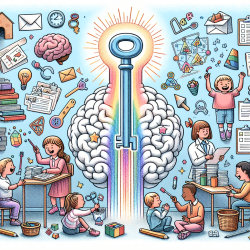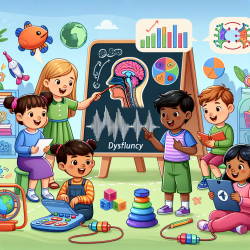Introduction
Attention Deficit Hyperactivity Disorder (ADHD) is a prevalent neurodevelopmental disorder that affects a child's ability to focus, control impulses, and manage organizational tasks. While the inattention aspect of ADHD is well-documented, its relationship with organizational skills, especially in the presence of comorbid disorders like anxiety and depression, requires further exploration. A recent study titled Exploring the relationship between ADHD, its common comorbidities, and their relationship to organizational skills sheds light on this intricate relationship.
Understanding the Study
The study involved 407 adults, with 201 diagnosed with ADHD. Participants were assessed on their organizational skills, ADHD symptoms, and comorbid conditions such as depression and anxiety. The results highlighted that individuals with ADHD were significantly more likely to have comorbid depression and anxiety. More importantly, organizational skills were notably lower in those with ADHD, influenced strongly by inattention rather than the comorbid conditions themselves.
Key Findings and Implications
- Comorbidity Prevalence: Over 75% of individuals with ADHD have at least one other psychiatric disorder, with depression and anxiety being the most common.
- Impact on Organizational Skills: ADHD's inattention component is the strongest predictor of reduced organizational skills, overshadowing the impact of comorbid disorders.
- Therapeutic Focus: Interventions should prioritize enhancing organizational skills, as these deficits persist even when other ADHD symptoms decrease.
Practical Applications for Practitioners
For speech-language pathologists and educators, these findings underscore the importance of targeted interventions to improve organizational skills in children with ADHD. Here are some strategies to consider:
- Executive Function Training: Implement activities that enhance planning, organization, and time management skills. Use visual schedules and checklists to support task completion.
- Behavioral Interventions: Incorporate cognitive-behavioral strategies that address inattention and impulsivity, helping children develop self-regulation skills.
- Family Involvement: Engage families in the therapeutic process, providing them with tools and strategies to support organizational skills at home.
Encouraging Further Research
While this study provides valuable insights, there is a need for further research focusing on children and adolescents. Understanding how organizational skills develop over time and the role of early interventions could significantly enhance therapeutic outcomes.
To read the original research paper, please follow this link: Exploring the relationship between ADHD, its common comorbidities, and their relationship to organizational skills.










